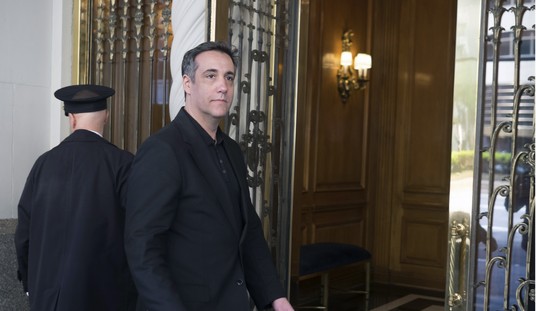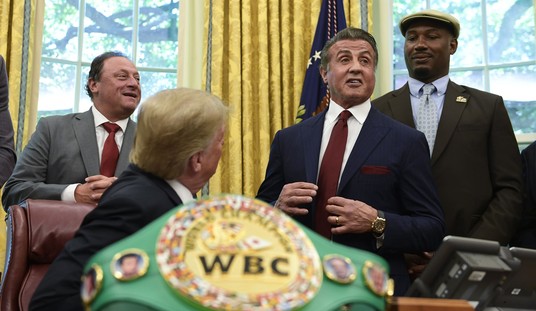“The evidence”, wrote Liz Sly of the Washington Post, “was incontrovertible, captured on video and posted on YouTube for all the world to see. During a demonstration against the Syrian regime, Wael Ibrahim, a veteran activist, had tossed aside a banner inscribed with the Muslim declaration of faith. … Islamic law comes to rebel-held Syria … And that, decreed the officers of the newly established Sharia Authority set up to administer rebel-held Aleppo, constitutes a crime under Islamic law, punishable in this instance by 10 strokes of a metal pipe.”
Welcome to Free Syria. At least part of it, anyway.
What has haunted President Obama since the eve of his debate with Mitt Romney is Benghazi: the nightmare of an insurgency burning down a consulate with money provided by Washington. That dark image of blowback has hovered over the Administration’s policy in Syria. The Obama administration is torn between to supporting an increasingly Islamist-dominated Syrian insurgency or to leave it unaided to fight Assad.
It has tried to split the difference by aiding the Syrian opposition short of publicly arming it. It may no longer be able to put off the choice now that Moaz al-Khatib, leader of the opposition Syrian National Coalition (SNC), has resigned his position over a lack of Western support for his forces. The Guardian reports:
The leader of the western-backed Syrian opposition coalition has resigned, citing what an insufficient lack of international support for those seeking to topple president Bashar al-Assad.
Mouaz al-Khatib, a respected preacher who has led the Syrian National Coalition since soon after its creation in November, said in a statement posted on his Facebook page that he was fulfilling a promise to quit if certain undefined red lines were crossed.
“I am keeping my promise today and announcing my resignation from the National Coalition so that I can work with freedom that is not available inside the official institutions,” he wrote.
The translation of al-Khatib’s statement on Facebook is even more forceful than its newspaper abstracts. He says, “we have been slaughtered under the watchful eyes of the world for two years, in an unprecedented manner by a vicious regime. Many have offered a hand on a purely humanitarian basis and we thank them for that. But there is a bitter reality [to] tame the Syrian people and besiege their revolution and attempting to control it.”
Our message to everyone is that Syrians decisions will be taken by Syrians, and Syrians only.
I had promised our people, and vowed to God on that, to resign if the situation reaches certain red lines. Today, I honour my promise and I resign from the National Coalition to be able to work with freedom not available through official institutions. We understand that official posts are means to serve noble ends, not goals to be sought or for us to maintain. …
A little bit of patience, our people. Isn’t the morning near?
High Noon, to mix the metaphors, may have come and gone for the Obama administration with Will Kane still trying to make up his mind whether to meet the noonday train or hightail it out of town. Al-Khatib’s words are an open accusation of the Obama administration’s policy or they are nothing at all.
He writes: “Everything that happened to the Syrian people, from destruction of infrastructure, arrest of tens of thousands of their children and displacement of tens of thousands and other tragedies is not enough for the world to take an international decision to allow people to defend themselves.”
It’s a brutal way of asserting that after all was said and done, more was said than done. Attempts to fine-tune support for Syria; to be for it while being against certain parts of it; to lead it “from behind” so to speak, has proved a shorthand for letting the conflagration spread notwithstanding. If the administration’s policy was to manage the Syrian conflict it ain’t working.
For one Lebanon is falling apart. The Carnegie Middle East Center said, on the heels of the recent resignation of Lebanon’s Prime Minister, that his departure “at a minimum … ushers in a period of further drift and weakening of the country’s political and security institutions. At worst, it might herald a serious entry of the Syrian conflict into Lebanon, a showdown between the country’s factions, and challenges to its basic constitutional order.”
And just the other day President Netanyahu apologized with a forced smile to Turkey because the crisis in Damascus has become so urgent. Republican Senators are clamoring for a definite plan to control Assad’s chemical weapons.
The Syrian problem, far from being contained, is metastasizing.
Some fundamental calculation has gone awry. What and why?
War is different from politics in that nobody has yet invented a way of doing warfare halfway. Not everything can be “fixed” because in combat one tends to be either dead or alive; victorious or defeated. It is binary; zero-sum. Both former Lebanese PM Najib Mikati nor Mouaz al-Khatib have left the stage, knowing you either on it, or off it.
But poor John Kerry is still trapped between bases. The Washington Post notes that “Secretary of State John F. Kerry on Sunday lobbied Iraqi Prime Minister Nouri al-Maliki for greater scrutiny of flights the United States claims carry Iranian weapons and fighters across Iraq to Syria. The Obama administration has been unable to persuade Iraq to block such flights or even to perform regular inspections, and Kerry didn’t make much headway.”
What now?
The Arab Digest features a video of “Libyan Islamists applying the strict Sharia lashes code on a number of men in Sirte, the late Libyan dictator’s hometown. According to local sources, the Islamist ‘Ansar Al Sharia’ group, allegedly responsible for a lethal attack on the American embassy in Benghazi, is now the leading force in the city.” It is a pointed reminder of what happens when Washington tries unsuccessfully to have it both ways at once.
That is what Syria will look like unless Washington determines the nature of the successor regime.
President Obama, who has wanted to compare himself to Abraham Lincoln may find that history will ultimately liken him to Lyndon Johnson. Professor George Herring, reflecting on LBJ’s conduct of the Vietnam War, recalls that he too tried to micromanage outcomes. “Although he took quite seriously his role as commander in chief, personally picking bombing targets, agonizing over the fate of U.S. airmen, and building a scale model of Khe Sanh in the White House situation room, Lyndon Johnson, unlike Polk, Lincoln, or Franklin Roosevelt, never took control of his war.”
Thus “leading from behind” maybe nothing more than our old friend, Lyndon Johnson’s poorly executed policy of keeping the boys ‘from bombing an outhouse without my permission’. The not-so-smart adhocracy of the Vietnam War. The same old blundering style, the same old infatuation with riskless politics that ended in the last helicopter out of Saigon. Of Johnson, Herring wrote:
Strategy was primarily a matter of sending signals to foes, of communicating resolve, of using military force in a carefully calibrated way to deter enemies or bargain toward a negotiated settlement. This approach must have appeared expedient to Johnson and his advisers because it seemed to offer a cheap, low-risk answer to a difficult problem. It also appeared to be controllable, thereby reducing the risk of all-out war…
He could not have been more wrong, of course, and the reliance on limited war theory had unfortunate consequences. It encouraged avoidance of costly and risky decisions. It diverted attention from real strategy and caused the military problem of how to win the war in South Vietnam to be neglected. It led the decision-makers into steps they must have sensed the American people might eventually reject. And when Hanoi refused to respond as bargaining theory said it should, the United States was left without any strategy at all.
To Johnson it was all about asking a question until he got an answer he liked. What he failed to grasp was that enemy understood the question perfectly but had decided to say ‘no’.
Strategy is, above all, the recognition of choices; an accurate perception of the topologies in a decision tree. It is of no help to those who think they can having things all ways at once. Freedom is ironically available only to those who understand that to get something you give up something. There exists no free lunch. That could be true of Syria as it is true of everything else.
The Three Conjectures at Amazon Kindle for $1.99
Storming the Castle at Amazon Kindle for $3.99









Join the conversation as a VIP Member